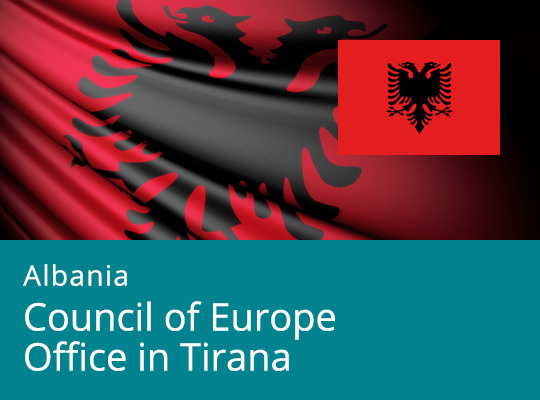Excecution of ECHR's decisions
The project “Removing the obstacles to the non-enforcement of domestic court judgments / Ensuring an effective implementation of domestic court judgments” was implemented by the Department for the Execution of the Judgments of the European Court of Human Rights. It lasted for 36 months, from January 2009. The countries where the project was implemented were six: Albania, Azerbaijan, Georgia, Moldova, Serbia and Ukraine. Operational partners were: Government agent offices, Ministries of Justice and Finance, Supreme Courts, judges, bailiffs. The total project cost was € 1 249 907, of the Human Rights Trust Fund.
The project fell within the main purpose of the fund, which is to support members states in implementing the ECHR at the national level by ensuring full and timely national execution of the judgments of the Court through measures to tackle persistent problems of non-execution of decisions of national courts. As a result, it managed to improve the execution of ECtHR judgments in Albania, Azerbaijan, Georgia, Moldova, Serbia and Ukraine by assisting these states in putting in place effective norms and procedures for a better enforcement of national court decisions.
Specific objectives of the project:
- Objective 1 - Obstacles identified and action plans agreed upon:
Organization of a Multilateral Round Table with the representatives of the authorities directly involved in the execution of domestic decisions to present the specific execution-related problems identified in their countries, and their analysis of solutions found so far (1 joint round table for all 6 countries, organised at the start of the project).
Stock-taking bilateral meetings with authorities to identify outstanding issues following the reforms already carried out in each country, and possible solutions (1 in each target country = 6 in all);
One concluding Round Table: Objective: reaching a consensus to undertake reforms and make political commitments towards adopting outstanding measures. Representatives of the authorities directly involved in the execution of domestic decisions to present further progress accomplished in eliminating the specific execution-related problems in their countries (1 joint round table for all 6 countries to be organised towards the end of the project).
One seminar aimed at providing assistance to states to help them monitor the effectiveness of the reforms introduced at the national level, with a view to furnishing timely information useful for further improving the relevant laws and procedures (1 joint multilateral seminar for all 6 countries).
- Objective 2 - Coordination among national bodies improved:
Expert analysis of current practice (1 per country = 6 in all);
Multi-agency meetings of relevant national actors and Council of Europe representatives aimed at better coordinating execution needs and procedures in each country (1 per country = 6 in all);
Drafting of recommendations for a possible standing coordination mechanism.
- Objective 3 - Knowledge of the ECHR requirements strengthened among national officials:
Awareness-raising sessions for key national officials from all relevant agencies responsible for execution with a view to facilitating the adoption of a zero tolerance culture towards deliberate non-compliance with court decisions (1 per country = 6 in all);
Training sessions for selected national officials, depending on the country’s specific problems and including but not limited to judges, prosecutors, law enforcement, social services and other ministries’ representatives on the ECHR requirements in the field of execution of domestic judgments, and on the importance and consequences of non-execution (3 to 6 in all);
Translation and dissemination to relevant officials of ECtHR judgments on non-execution of domestic court decisions, of memoranda on the execution of judgments, best-practices studies with a view to facilitate progress of the needed reforms by the national authorities.
- Objective 4 - Strengthening the capacity of specific agencies to steer reforms:
Provision of targeted technical expert advice on concrete, pending issues not yet resolved by the authorities, which might include the need to adopt sector-specific administrative measures or specific rules and regulations of general application (about 2 expertises/studies per country = between 8 and 12 in all);
Bilateral meetings with specific agencies experiencing difficulties to adopt the measures needed to improve the execution process in the country (4 to 6 in all);
It was proposed to pursue activities in two strands: a) at a multilateral level, involving several countries participating in this project with a view to exchanging experiences and drawing on best practices proven to work; and b) on a bilateral level, working directly with the relevant officials and structures from the country concerned.
The activities described above are closely linked to, and were meant to reinforce, the ongoing work of the Committee of Ministers in supervising the execution of ECHR judgments. Sources of verification for the progress with adopted necessary measures will be the Committee of Ministers’ decisions adopted in respect of all cases, as well as its Memoranda, Interim and Final Resolutions adopted in cases pending before it.
+355 4 45 40 201



